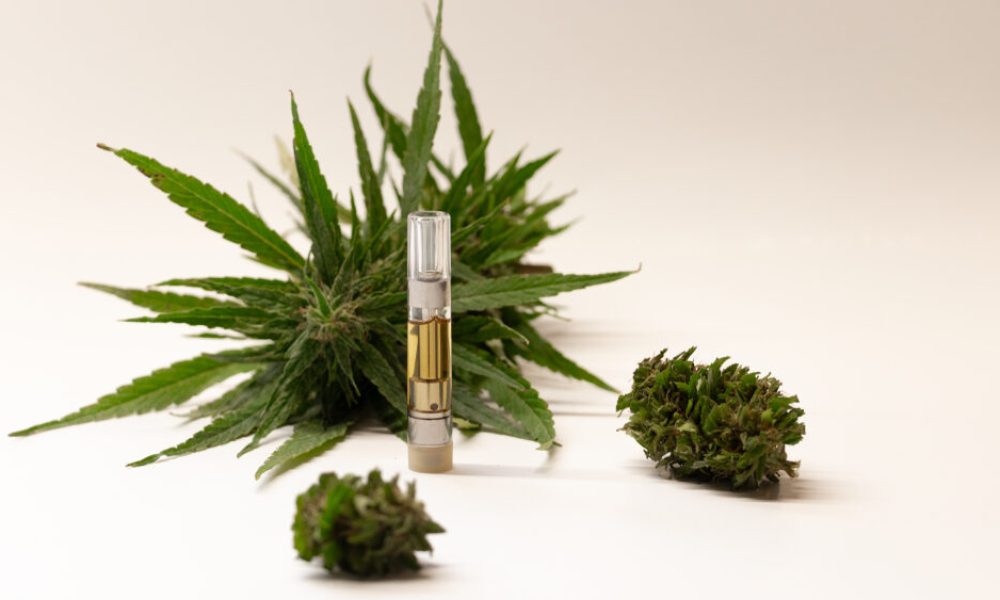CBD (Cannabidiol) is a compound found in the Cannabis sativa plant, also known as Cannabis or hemp. It is a non- psychoactive compound. Unlike the cannabinoid THC (tetrahydrocannabinol), CBD does not produce mind-altering effects known as a “high.” CBD interacts with the body’s endocannabinoid system (ECS), a network of chemical signals and cellular receptors that maintain body balance. It has garnered attention because of its benefits, including tackling pain, easing anxiety and improving sleep. It has anti-inflammatory properties without side effects like painkillers and it also helps to reduce seizures.
How does CBD work?
CBD interacts with the ECS, which consists of two primary cannabinoid receptors: CB1 and CB2. CB1 receptors regulate mood, memory and pain perception, primarily in the brain. CB2 receptors are located in the nervous system. CB2 reduces the chemicals that promote inflammation. These receptors calm down the overactive immune cells and support immune balance.
CBD Benefits According To Science
CBD is supported by scientific evidence for the following benefits.
Pain relief
CBD may be effective in various types of pain including arthritis, chronic pain and neuropathic pain.
CBD for Anxiety Reduction
CBD helps to reduce anxiety and stress by interacting with serotonin receptors. It directly influences the body’s stress response system. It may have anxiolytic (anxiety-reducing) effects, particularly in social anxiety disorder. CBD could improve generalized anxiety disorder, SAD, OCD, and anxiety associated with PTSD to some extent.
Scientific research and real -life results
There have been a good number of small clinical studies conducted with CBD in various anxiety disorders, notes Gerry McNally, Ph.D., vice president of research and development at Next Evo Naturals, a CBD and supplement company, and a Forbes Health Advisory Board member. He adds that while current studies may have contradictory results, overall, research indicates taking CBD for stress and anxiety may be beneficial.
2022 clinical trial
A trial was conducted with 14 participants. It showed that high doses of CBD taken under the tongue for four weeks reduced anxiety. It can also improve mood, sleep, and quality of life.
Mixed results
In 2019 a study published in the Permanente Journal found that CBD significantly decreased anxiety levels in 79% of participants. And a 2020 review in The Canadian Journal of Psychiatry found that CBD may improve symptoms of anxiety and depression in individuals . It is also used for the treatment of mood disorders.
Social anxiety
In 2019 another research showed that CBD is the best alternative of Placebo (pain killer) for teenagers and tackles social anxiety. A 2022 study found that CBD has positive influence on young people whose regular anxiety medicines are not working.
Improved sleep
CBD relaxes and calms your mind and body and contribute to better sleep quality. The individuals who suffer from insomnia caused by anxiety and trauma, use CBD. Insomnia is a disease in which a person faces difficulty falling asleep. CBD may help regulate your circadian rhythm (sleep-wake cycle). Says Dr. Gaiani. It’s believed that CBD’s relaxing effects on the body and mind can help promote a restful night’s sleep
It reduces discomfort at night and helps in longer sleep.
Reduce inflammation
A 2022 review in Frontiers in Pharmacology concluded that CBD may reduce inflammation by stopping the production of pro-inflammatory cytokines (a group of signaling molecules that increases inflammation in the body). CBD converts lipid molecules from pro-inflammatory compounds like leukotrienes to inflammation-resolving mediators (SPMs). The use of CBD reduced joint inflammation, immune cell infiltration, and improved immune balance.
Seizure management
CBD is popular for its effectiveness in managing Seizures. It is effective in many types of epilepsy in children as well as adults. For the treatment of Dravet syndrome and Lennox-Gastaut syndrome (two types of epilepsy), a CBD based medication is prescribed called Epidiolex. Epidiolex is FDA-approved for the treatment of epilepsy. According to a 2019 review in molecules, clinical examination showed that CBD has the significant property to reduce the frequency and severity of seizures.
Relief cancer symptoms
CBD is playing a potential role in supporting people with cancer. It may help ease symptoms of cancer and relief chronic pains by interacting body’s endocannabinoid system (ECS). During chemotherapy, patients usually suffer from nausea and vomiting. CBD, especially combined with THC, may help alleviate these symptoms. It stimulates appetite in some patients and help manage inflammation-related symptoms.
Diabetes
CBD has gained attention in the treatment of Diabetes because of its anti-inflammatory properties. It has potential to improve insulin sensitivity. CBD is also effective in diabetic neuropathy by protecting nerve cells and relieving pains.
Neurological disorders
CBD has a promising role in neurological disorders as cannabinoid receptors: CB1 and CB2 are located in brain. It is helpful neuropathic pains. CBD has significant role in neurological disorders including multiple sclerosis (MS), Parkinson’s disease, Alzheimer’s disease and Huntington’s disease.
CBD Types
- Oil and tinctures
2. Capsules and soft gels
3. CBD creams
4. Edible, such as gummies and candies
5. Vapes
Conclusion
Overall researches indicate that CBD has shown promise for managing anxiety, insomnia and chronic pains Many users report positive experiences, particularly with anxiety and sleep issues. Although more research is needed. It is generally safe for more individuals but shows some side effects in some people if the dosage is increased too much. It has some side effects such as fatigue, dry mouth, diarrhea and weight loss. So, it should be used cautiously.





